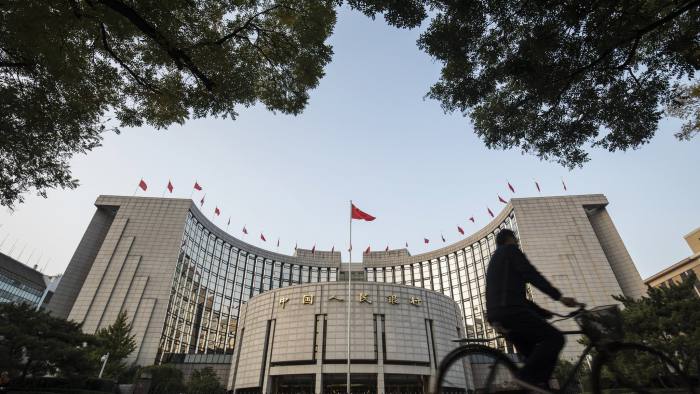
The Financial Times writes that China is once again causing severe headaches for global investors. Until recently, the economy was coping well with a tightening in financial conditions, designed to reduce speculation and excessive leverage in the financial system, especially among shadow banks. In early 2018, China remained a zone of firm growth in an emerging world that was clearly reacting badly to the rising dollar.However, the very weak domestic demand data published in May have shaken market confidence. Consumption and investment appear to be slowing. Deleveraging, it is feared, might cause a recession in domestic demand, just at the moment when US tariffs on Chinese exports will weaken the foreign trade sector. Chinese equities have dropped 23 per cent from the peak and the renminbi has fallen 6 per cent against the dollar. So is the Chinese zone of stability now becoming a new source of idiosyncratic risk to the global economy?...First, the economy is not as weak. The decline in domestic demand in May very likely exaggerates the risks of a big slowdown in investment and consumers' expenditure...Meanwhile, the slowdown in fixed asset investment, which triggered market concerns, seems to be mainly related to the shrinkage of the shadow banking sector. While it is true that infrastructure investment is slowing markedly, this can quickly be reversed by an easing in fiscal policy in the second half of 2018...Furthermore, while the imposition of US tariffs on China's exports is a clear and present danger, the scale of the impact on the growth rate needs to be kept in perspective. Even an extreme escalation of the trade war would probably reduce China's growth rate by less than 1 per cent per annum. In summary, a China-specific shock to global stability does not seem very likely at present.
Reuters reports that the FIFA corruption scandal might at one stage have put off some potential western sponsors, but the plethora of Chinese companies backing this World Cup are by no means just plugging a gap, Chief Commercial Officer Philippe Le Floc'h said on Sunday...The involvement of Chinese companies with FIFA is fairly new. Solar panel manufacturer Yingli Green Energy was China's first World Cup sponsor as recently as 2010. Real estate conglomerate Wanda, which also counts entertainment and sport among its huge portfolio of interests, is now among the seven "global partners" of soccer's world governing body and is committed to remain so until 2030. Hisense is one of three Chinese firms that FIFA lists among five World Cup sponsors, the others being smartphone maker Vivo and dairy firm Mengniu. "Chinese companies are eager to learn and expand and develop and they're also very eager to develop football in China which is what we want to do," Le Floc'h added. Developing football, and the wider sports market, in China is also a key objective of President Xi Jinping, and major Chinese companies have been quick to get involved.
- 2018-07-06 China Says U.S. Has Begun 'Largest Trade War' In History, Retaliates With Tariffs
- 2018-07-05 China says U.S. 'opening fire' on world with tariffs, vows to respond
- 2018-07-04 Trump tariff salvo triggers anxiety for US chipmakers
- 2018-07-03 China's big bond experiment is about to go through a rough patch
- 2018-07-02 Trump Trade War Arrives in the Data as China Awaits Tariffs
- 2018-06-29 State Department risks China's ire with request for US Marines in Taiwan
- 2018-06-28 Xi Warns Mattis China Won’t Surrender ‘One Inch’ of Territory
- 2018-06-27 Trump Backs Softer Restrictions on Chinese Investment
- 2018-06-26 Why markets don't like US investment restrictions on China
- 2018-06-25 Trump plans to bar China from investing in US tech firms and block more tech exports
- Bloomberg China Needs to Resist Temptation of Traditional Retaliation, Sheard Says
- Reuters China's 'firefighter' vice president avoids flames of US trade war
- Bloomberg Here's How a Trade War Between the US and China Could Get Ugly
- Bloomberg Trade War Muddles China's Battle to Curb Debt
- Financial Times China scales back property subsidies, adding to growth concerns
- Forbes Trump's And China's Tariffs Could Do Permanent Damage To Soybean Farmers
- AXIOS.com Lindsey Graham blames China for North Korea's nuclear pullback
- The Guardian China looking to buy stake in UK nuclear plants, say reports
- Wall Street Journal China's Cosco Gets US Security Clearance to Purchase Shipping Rival
- Los Angeles Times US warships pass near Taiwan in a show of defiance to China
